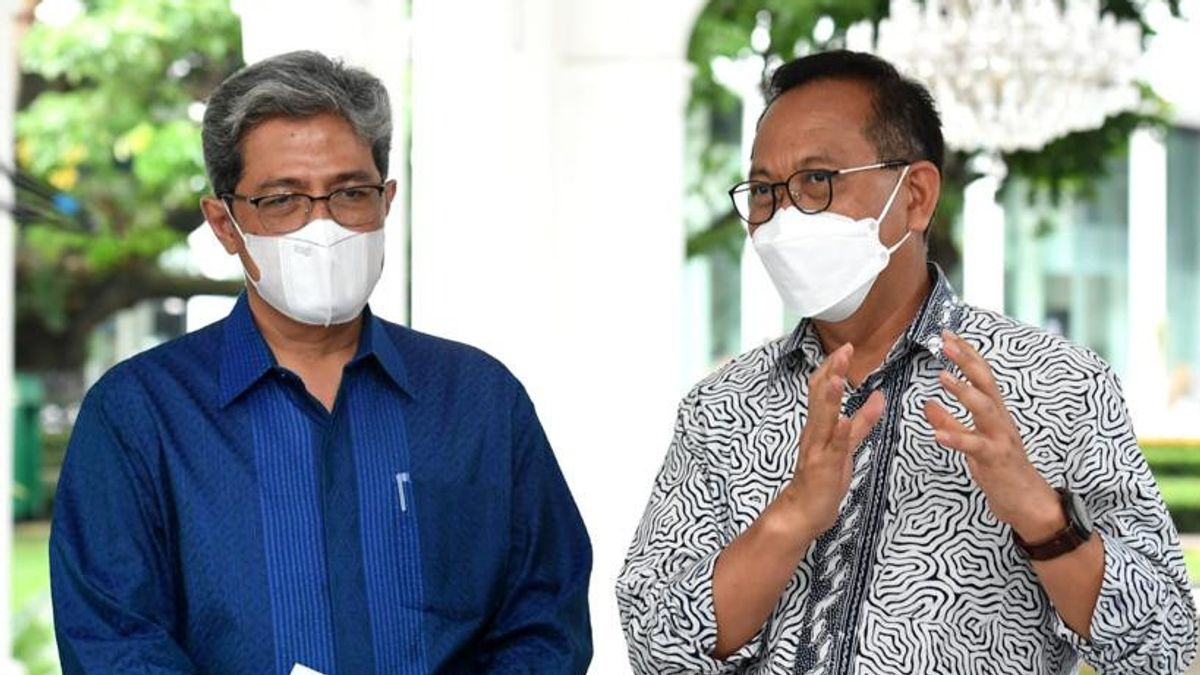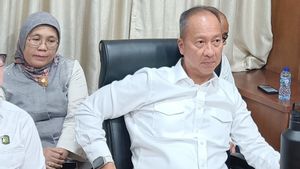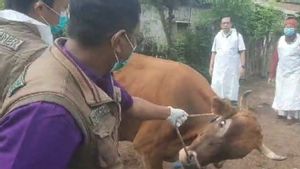JAKARTA - The Corruption Eradication Commission (KPK) confirms its commitment to oversee the development of the National Capital City (IKN) of the Archipelago. This is done by forming the IKN Task Force which consists of three work units.
KPK Deputy Prevention Pahala Nainggolan said the formation of the IKN Task Force was carried out after a meeting with the Minister of National Development Planning/Head of Bappenas Suharso Monoarfa some time ago.
"After the visit of the Minister of PPN/Head of Bappenas to the KPK two months ago, it was explained about IKN and the Chair of the KPK immediately formed an IKN Assistance Task Force," Pahala told reporters after meeting the Head of the Nusantara IKN Authority Agency Bambang Susantono and his deputy at the KPK's Red and White Building, Kuningan Persada. , South Jakarta, Monday, March 21.
"The contents are first from Stranas PK because there is an action plan on one map policy and procurement, the second is of course from the Deputy for Prevention from the Monitoring Directorate who provides recommendations for improvement, and third, from Korsup," he added.
The participation of the korsup team, continued Pahala, was carried out because IKN would be built in East Kalimantan. The team that will be deployed is the Directorate of Korsup Region IV which is obliged to monitor the areas of Kalimantan and Sulawesi.
"So there are three work units in one task force. All of them already have the decree," he said.
In addition, there are a number of things that the KPK has done in carrying out supervision. First, to dissect the map of the IKN area, both the core area which has an area of 55 thousand hectares and the development area of 250 thousand.
From this process, the anti-corruption commission has sent a letter to Bappenas. In the letter, said Pahala, all their findings have been conveyed.
"We have sent a letter to the Minister of Bappenas that this area must be said to be clean and clear on paper and in the field. Well, it's the same thing that Stranas PK has been overlaid and sent the results to Bappenas, there are several follow-up actions. For example, a request for forest release to the Ministry of Environment and Forestry so that regulations are issued. Apart from having a mining IUP permit and a plantation IUP, what are you going to do with it," explained Pahala.
Not only that, the Corruption Eradication Commission also dissects the derivative rules of the IKN Law which must be completed by mid-April. Pahala explained that this was done using the Corruption Risk Assessment (CRA) system.
"We have participated in several meetings, essentially we will provide notes where this derivative regulation can also support governance, if there is a risk of corruption, how to mitigate it," he said.
"So it's not correcting the rules, no. But giving notes which will hopefully open up opportunities for corruption, we will provide notes and mitigate them," concluded Pahala.
The English, Chinese, Japanese, Arabic, and French versions are automatically generated by the AI. So there may still be inaccuracies in translating, please always see Indonesian as our main language. (system supported by DigitalSiber.id)













